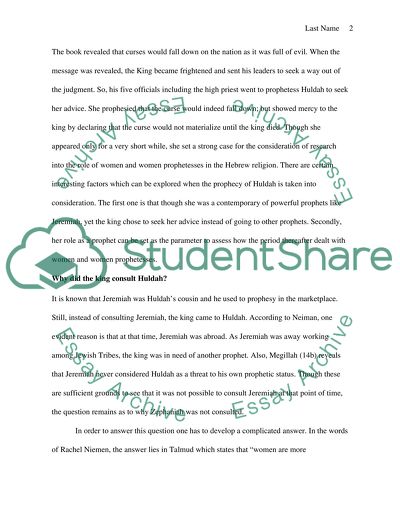Cite this document
(“The Prophet Huldah: A Woman of Few Words Research Paper”, n.d.)
Retrieved from https://studentshare.org/religion-and-theology/1396237-the-prophet-huldah-a-woman-of-few-words
Retrieved from https://studentshare.org/religion-and-theology/1396237-the-prophet-huldah-a-woman-of-few-words
(The Prophet Huldah: A Woman of Few Words Research Paper)
https://studentshare.org/religion-and-theology/1396237-the-prophet-huldah-a-woman-of-few-words.
https://studentshare.org/religion-and-theology/1396237-the-prophet-huldah-a-woman-of-few-words.
“The Prophet Huldah: A Woman of Few Words Research Paper”, n.d. https://studentshare.org/religion-and-theology/1396237-the-prophet-huldah-a-woman-of-few-words.


